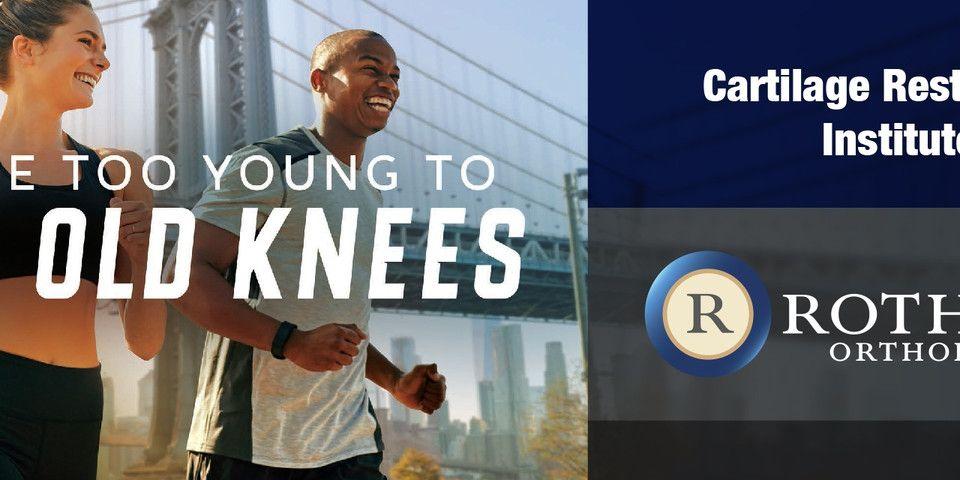How to Recognize a Pinched Nerve in the Neck
Cervical Radiculopathy: Causes, Symptoms, and Treatments
Don’t worry. The medical term “cervical radiculopathy” sounds a lot scarier than the condition actually is. Cervical radiculopathy is commonly known as a pinched or compressed nerve in the neck. A pinched nerve may heal over time without any treatment. Still, it is important to understanding this spine condition so you know when to see a specialist. The Spine experts at Rothman Orthopaedic Institute have all of the information you need. Read on to learn about cervical radiculopathy symptoms, causes, and possible treatments.
The Anatomy of a Pinched Nerve
Your spine is made up of 24 vertebrae, or small bones that connect to form a protective canal for the spinal cord. The openings in each vertebra allow nerves to come through. These nerves carry messages between the brain and the muscles.
In between each vertebra is an intervertebral disc, composed of a jelly-like nucleus and a supportive outer ring called the annulus fibrosus. These discs are shock-absorbers, allowing you to stand and move without spine pain.
A pinched nerve in the back typically results from degenerative changes in the spine. General wear-and-tear specifically in the neck region of the spine is known as cervical spondylosis. As you age, your intervertebral discs may bulge, lose fluid, or become stiffer. When a disc deteriorates, the two vertebrae on either side move closer together and form bone spurs. This movement can narrow the vertebrae openings for the nerve roots to travel, causing compression.
A herniated disc can also cause cervical radiculopathy. This can also occur with degenerative spine changes. The fluid-filled nucleus pushes against the outer ring, causing it to bulge out of place. As it pushes toward the spinal canal, it puts pressure on the nerve root.
Pinched Nerve Symptoms
Symptoms of cervical radiculopathy may include:
-
Shoulder pain
-
Pain that travels from the neck down the arm
-
A sensation of extreme weakness in the muscles
-
“Pins and needles” tingling in the fingers or hands
-
Loss of sensation in the areas mentioned above
This condition may cause difficulty extending or turning your neck without pain. If you have any of these symptoms, take note of what you are feeling and how long the sensations (or lack of) last.
In a Spine Specialist’s Office
When you schedule an appointment with a spine specialist for any of the above symptoms, she or he will first discuss your medical history with you. Then, the doctor will examine your shoulders, neck, arms, and hands. If the doctor suspects cervical radiculopathy, they can order any combination of the imaging tests below to confirm the diagnosis:
-
X-rays, to show the alignment of bones
-
Magnetic resonance imaging (MRI) scan, to illuminate damaged soft tissue
-
Electromyography (EMG), to determine if nerves are functioning regularly
-
Computed tomography (CT) scan, to locate any bone spurs that have formed
As stated above, a pinched nerve may heal itself with time, without a doctor’s care or at-home treatments. However, if the patient experiences pain and other symptoms for an extended period of time, prescribed medications or a soft cervical collar may be recommended. This supportive collar limits neck motion and can decrease the pinching of the nerve roots. Another non-operative treatment option is physical therapy exercises. Certain exercises can strengthen neck muscles and improve a patient’s range of motion. Follow your spine doctor or physical therapist’s instructions before attempting any exercises on your own.
If non-operative treatments fail, there are a number of cervical radiculopathy procedures that are safe and effective.
Do you still have questions or think you may have cervical radiculopathy symptoms? Schedule an appointment today. The spine specialists at Rothman Orthopaedic Institute are the top orthopaedic professionals in their field, with experience in both research and practice. Our doctors are friendly, trustworthy, and dedicated to providing patients with the answers they are looking for.
For more information or to make an appointment, please visit us here or contact us at 1-800-321-9999.
Related Specialties
Related Conditions
Related Treatments
Related Programs
-

Cartilage Restoration Institute
This is a center where patients can go to have their disabled joint biological resurfaced, realigned, and stabilized without having the joint replaced by artificial materials such as metal and plastic. It is well known that the outcomes of patients under the age of 50 undergoing artificial joint replacement are not as good as we would like. Therefore we feel the future of Orthopaedics is to try to restore a joint back to its original anatomy by realignment, ligament reconstruction, and cartilage restoration.Read More




